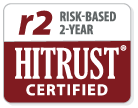We sat down to chat with Brent Zey, ETL Engineer, to talk about navigating the complexities of healthcare data and why empathy is a critical skill for collaboration.
Q: Tell us about your background, what brought you to Curation Health and why you joined us.
A: My background is in Mathematics, Statistics, and Economics – with some French sprinkled in! After completing my master’s in economics at the University of Kansas, I began working as a risk analyst and data engineer for a fintech company. It was in that role I began contributing to the business logic component of a credit approval API.
That experience, combined with my interest to work at a company making direct, measurable impacts on patient outcomes in the healthcare industry, jump-started my interest in engineering and propelled me towards my current career path in ETL and Software engineering with Curation Health.
Q: Your job involves taking incredibly complex data and helping distill it down for actionable insights for clinicians, how do you approach this difficult task?
A: I approach this with humility and an eye towards iteration. Having an iterative mindset and approach has helped me remove the mental block of perfectionism that I, and many others, can fall victim to.
I quickly learned after my first few months at Curation Health that healthcare data is messy and changes wildly with high velocity.
I find it best to take an honest, best attempt approach to a solution, realizing it is a quality solution given the current understanding and state of the data allowing you to put valuable results in front of clinicians. Once this stage has passed, one can go back to the drawing board and improve upon processes.
This includes taking important feedback and insights from our clients to integrate into our platform to improve our product and drive higher client satisfaction. Lastly, I try to stay humble, have fun and not take myself too seriously. I’m glad to be one member of an amazing Curation Health team of intelligent, funny and passionate people.
I don’t want to miss out getting to know all my amazing team members by separating myself off from the team and remaining buried in my work. It truly takes this entire team, together we can move mountains!
Q: Every client is in a different place with value-based care. How do you tailor your approach to meet individual client needs?
A: I try my best to work closely with the engineering and clinical stakeholders for the clients I support.
I find it imperative to translate the verbiage of the value-based care paradigm to the best approximation of what a client understands based on their current healthcare model and any progress they’ve made.
This helps ensure higher quality communication, data and product outcomes.
Q: Why is collaboration critical to what we do?
A: Our team is aware that all of us will stumble along the way at some point. Thankfully, our culture in engineering of open communication and collaboration have proven to be the empathetic keys for removing barriers others are facing that we have previously encountered. This is a humanizing approach, displaying to other team members that we care for each other. This process allows our teammates to learn from the experience and continue their own journey, carving new paths forward for us all.
Q: In your opinion, why is engineering infrastructure and know-how critical to a health tech start-up success?
A: The key item there is “start-up,” you need to move quickly and prove you’re already on-the-go. In the modern world, business and consumers have come to expect access to quality, reliable information. Proper infrastructure design and possessing the know-how to interface with it, has proven to be incredibly valuable for moving large amounts of information and data for analytical, transactional, or communicative purposes with clients.
I constantly gave a huge shoutout to our lead engineers, Ken Brumer and Shawn Boles for their keen eye to detail regarding the design of our infrastructure. Despite having a small team, we need to be able to deliver and iterate quickly, and thanks to Ken Brumer and Shawn Boles work and our collaborative team culture, we have been able to execute on this goal.
To read more in our Profiles in Healthcare series, visit our blog.

